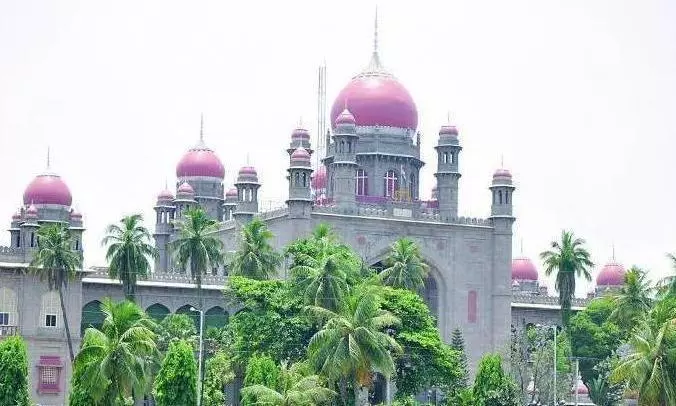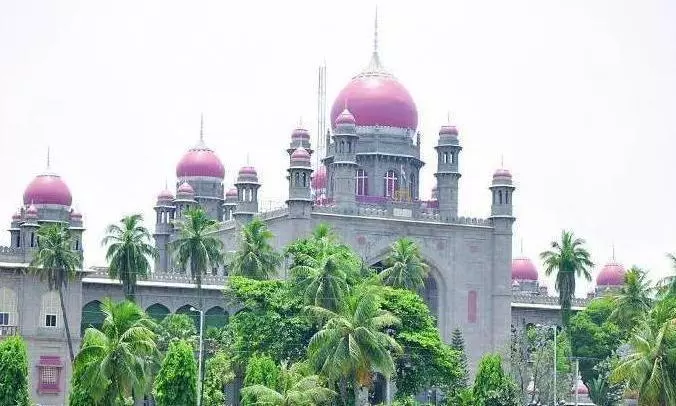
Hyderabad: A panel comprising Justices P. Sam Koshy and N. Tukaramji of the Telangana High Court refused to interfere in a matter involving a 19-year-old girl voluntarily leaving her parents’ home to marry against their wishes. The panel dealt with a habeas corpus petition filed by the mother of the 19-year-old, a B.Tech. student. The petitioner alleged that her daughter, belonging to the Reddy community, was trapped in the name of love by a person outside of their community and detained illegally. The petitioner sought a direction to the Uppal station house officer to trace and produce her daughter. The panel after personally interacting with the student concluded that she willingly left her home and married the respondent in a temple at Bhongir town. The girl expressed her preference to stay with her husband rather than return to her parents. After considering the statements of the student and the fact that she is a legal adult pursuing higher education, the panel determined that the writ of habeas corpus was no longer sustainable. The panel granted the student the liberty to stay with her husband without any interference from her parents or other family members.
Interim orders to OU not possible
Justice T. Vinod Kumar of the Telangana High Court took on file a writ plea challenging an order passed by Osmania University that allegedly violated the guidelines of the University Grants Commission (UGC). The judge was hearing a writ plea filed by Sivaneni Naresh who alleged that the university was treating mathematics and statistics as the same subject. The petitioner complained that the respondent was misapplying the UGC guidelines thereby preventing him and others from receiving fair and equitable treatment in the upcoming Telangana State Eligibility Test (TGSET), being conducted by the university. During the hearing, the judge remarked that the court could not issue interim directions at the last minute, as the exams were scheduled from Sunday. The judge accordingly posted the matter for further hearing.
Govt’s response in sweeper’s case sought
Justice T. Madhavi Devi of Telangana High Court took on file a writ plea challenging the action of Telangana panchayat raj and rural employment department, the finance and planning department and other authorities in not regularising the services of a full-time sweeper working for 32 years. The judge was hearing a writ plea filed by S. Vithal who alleged that the respondents had failed to treat his services as regular despite him working for several years. The petitioner alleged that the respondents were denying him legitimate living wages of last-grade pay and sought reckoning contingent services of the petitioner for computation of qualifying service. The petitioner sought the grant of pension, gratuity and other retirement benefits with consequential monetary benefits including seniority as per settled law laid down by the apex court in various cases. The judge after hearing the petitioner directed the state to file its response.
HC upholds dismissal of law officers
The state High Court upheld the termination of 55 government pleaders, special government pleaders, assistant government pleaders and additional government pleaders (law officers) across various district courts. Justice B. Vijaysen Reddy dismissed a batch of writ petitions filed by the law officers contending that their appointment could not be discontinued en masse without giving the opportunity of hearing and alleged that their dismissal was solely due to a change in government. Senior counsel Vedula Venkataramana, appearing for the petitioners, also contended that they had legitimate expectations to continue till the expiry of their tenure and complained that the GO issued by the state for discontinuing their services was arbitrary and in violation of the Constitution. In response, Advocate-General A. Sudharshan Reddy argued that the state’s decision was in the public interest and pointed out instruction No. 9 of the Telangana Law Officers (Appointment and Conditions of Service) Instructions, 2000.
The Advocate General argued that the appointment of law officers was a matter of professional engagement and not employment and, therefore did not confer any enforceable rights upon the officers to continue beyond the government’s pleasure. The state emphasised its need for legal representation aligned with its current policies and trust and highlighted the absence of any statutory or constitutional violation in the dismissals. The judge after hearing the parties dismissed the batch of writ petitions on the ground that the appointment/engagement of the petitioners was purely contractual in nature and held that there was no illegality in the termination of their services in view of the proviso to Instruction No. 9 of G.O. Ms. No. 187. The judge observed, “In the case of an advocate holding a private brief, the client need not give any reason for withdrawing the vakalat. Thus, it would be unreasonable to deprive the government of such freedom and discretion to appoint counsel of its choice.” The judge also observed that the government retained the discretion to terminate the services of law officers at any time and that such decisions were beyond the purview of judicial review unless they were shown to be perverse or illegal. However, the judge directed the state to ensure that pending salaries and honorariums owed to the dismissed petitioners/law officers were promptly paid.
